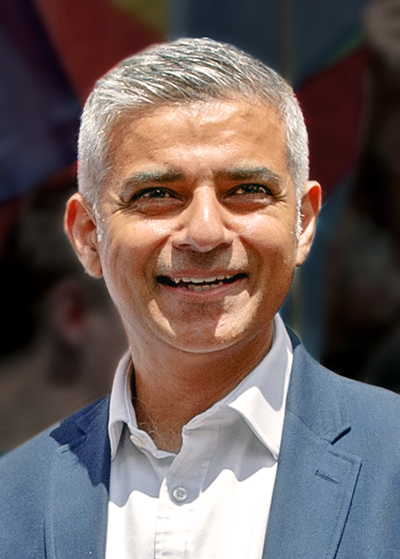
The Mayor of London, Sadiq Khan, has today set out how he will help the capital recover from Covid-19 with a significantly reduced budget.
Publishing his draft Budget for the Greater London Authority (GLA), the Mayor envisages how he will restore confidence in the city, minimise the impact on London’s communities and ‘build back better’ the city’s economy and society.
However, this Budget is shaped by a significant reduction in the financial resources available to the Mayor because of a forecast unprecedented loss of business rates and council tax income, caused by Covid-19, and the Government’s refusal to adequately fund local and regional government in London.
As a result, today’s draft Budget – which covers just the money directly apportioned to the GLA excluding the London Assembly and does not include funding for the Metropolitan Police, Transport for London and the London Fire Brigade – anticipates that £38m less will be available for 2021-22 than was expected before the pandemic hit, eight months ago.
The Mayor’s draft Budget concentrates funding on the city’s recovery from the pandemic. This is both the immediate recovery, but also in the medium to longer term. The budget includes a focus on the nine long-term measures that have been agreed by the London Recovery Board to enable a positive recovery from the pandemic across the city. These ‘missions’ are designed to tackle economic and social issues caused by the pandemic head-on.
The missions focus on helping Londoners into employment, improving mental health and wellbeing, tackling the climate and ecological emergencies, delivering enhanced public spaces and improving connectivity and digital skills.
The Mayor of London, Sadiq Khan, said: “Covid-19 has had and continues to have a profound and too often a tragic impact on the lives of Londoners. Thousands of people in our city have died already and continue to do so. Many more have suffered from the effects of the virus and yet more will. All Londoners have seen their way of life severely disrupted – often with dire consequences for their economic wellbeing and their physical and mental health – and this disruption continues during a second period of national lockdown. Many businesses are facing a fight for survival.
“This budget is about helping the city recover from this terrible period. as well as support for the coming months, the budget is also a chance to reimagine our city and define our aspirations and priorities for the recovery effort. Building on the fantastic community spirit displayed by Londoners during these toughest of times, we must deliver a cleaner, greener and fairer city, which is more economically resilient and supports thriving neighbourhoods, with improved wellbeing and access to a strengthened healthcare system.
“The Government is introducing a new era of austerity cuts on public services in our city at the worst possible time. Ministers are refusing to refund City Hall, the Met Police, local councils, TfL and other public services for the full cost of tackling Covid-19 and the income we’ve lost as a result. This only makes our job harder - but I am remain steadfast in my commitment to do everything possible to aid London’s recovery from this awful pandemic.”
Earlier this year, the Mayor revealed that GLA Group – which includes Transport for London, the Metropolitan Police and the London Fire Brigade - will need to make £493m of savings overall, over the current and next financial years, due to the pandemic. Draft budgets for these organisations will be published by the start of December, with the Mayor expecting to publish a combined consultation budget before the end of the year.
Of the £38m savings in the Mayor’s Budget, approximately £12m will be saved through reduced back office and ‘core’ costs - the resources that the organisation needs to deliver its statutory and necessary functions, including human resources, technology costs and by increasing collaboration.
This means that a reduction of approximately £27m will be required to other directorate costs, together with the scaling back of some projects that are not considered vital to London’s recovery from the pandemic. Decisions on how these savings will impact specific projects will be determined in the coming months, as London’s local authorities confirm their final tax estimates for next year.
Earlier this month, the Mayor confirmed that the Greater London Authority (GLA) will leave its current City Hall home next year and move its headquarters to The Crystal building in the Royal Docks.
The move will save the GLA Group £61m over five years and £126m over ten years. These savings will start to be made when the GLA leaves City Hall in December 2021.
In June, the Mayor agreed to take an immediate 10 per cent pay cut - and to freeze the salaries of his 15 direct appointments and higher-paid GLA staff. This came on top of the saving to taxpayers arising from the Mayor’s decision in 2016 not to take a pension, unlike his predecessors.
Photo by Katy Blackwood, Wikimedia commons


































